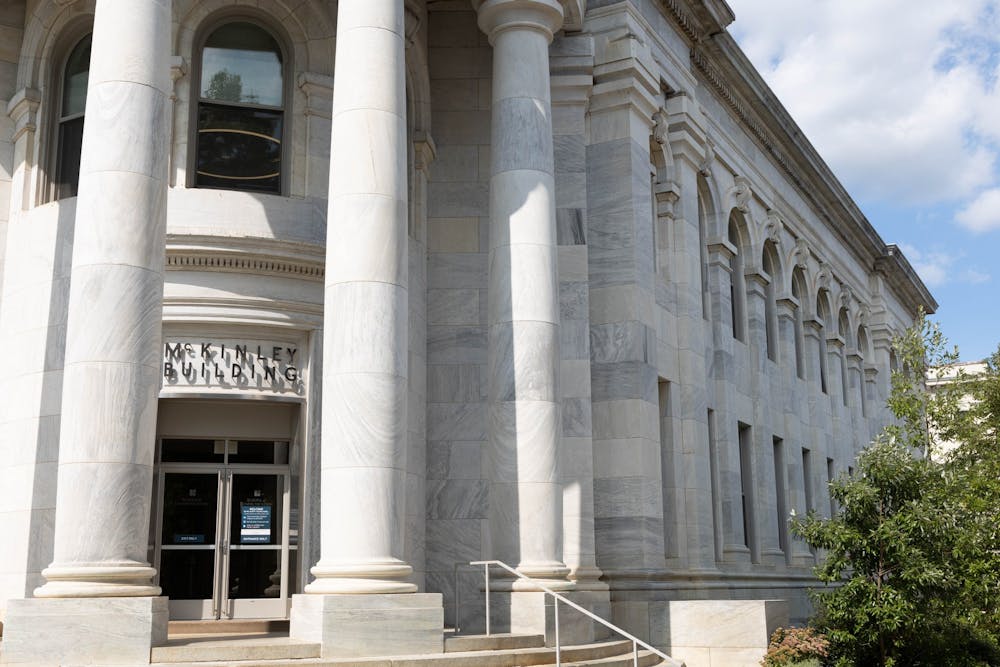Three environmental advocates joined forces Dec. 1 to discuss the importance of fighting food waste and how everyone can take action to help.
The speakers came to American University’s Office of Sustainability and School of Communication event with a wealth of experience, ranging from academia to environmental management. They included AU faculty Jesse Cross, the University’s Zero Waste manager and Professor Garrett Graddy-Lovelace, who teaches environmental policy. Spokesperson Allie Sale represented the sustainable food distribution company Too Good to Go at the event. The three speakers brought a common passion for sustainable food practices to the table, and shared proven solutions they helped pioneer within their respective fields.
“It’s also really important to have the necessary infrastructure and collection systems for food waste,” Cross said. “So much goes into a landfill.”
Cross also explained the inner workings of AU’s Zero Waste program and detailed its role in preventing such waste. His program oversees the collection of recycling and compost from every building on campus, ensuring that nothing goes to a landfill unnecessarily.
“Every dining location on campus generates some type of food waste. We try to collect as much as we can,” he said. “I believe we’ve collected around 12,000 or 13,000 pounds of food waste.”
The trio noted the significant contribution of food waste to global warming because it emits a potent greenhouse gas called methane into the atmosphere. Organic matter in landfills contributes substantially to greenhouse gas emissions worldwide.
While the panelists stressed that any action taken to reduce food waste is also a step towards mitigating climate change, they also made it clear that individual actions have the power to make a substantial difference.
“On the consumer level, if you’re going to purchase the food, then it is your responsibility to really use your senses before you throw it in the trash,” Sale said. “Eat the Cheeto that is five days past its ‘best by’ date, it’s not going to kill you.”
The panelists advocated for a cultural shift to view organic matter as an extremely valuable resource, not something to be thrown out.
“Forty percent of our food is wasted. So much of what we think of as waste is actually still edible, or could be used,” Graddy-Lovelace said. “People can really be thinking about how to move food when it’s still good.”
Too Good to Go has made that culture into their business model. The company partners with local businesses across the country to sell whatever food they have left in their shops at the end of the day. Diners can reserve it through an app and pick up the leftovers for a discount — usually under $6.
The panelists expressed hope for a more sustainable future, and invited their audience to become a part of it.
“Even having your generation recognize the importance of food systems is already so heartening. Graddy-Lovelace said. “Asking the question is the first step.”





